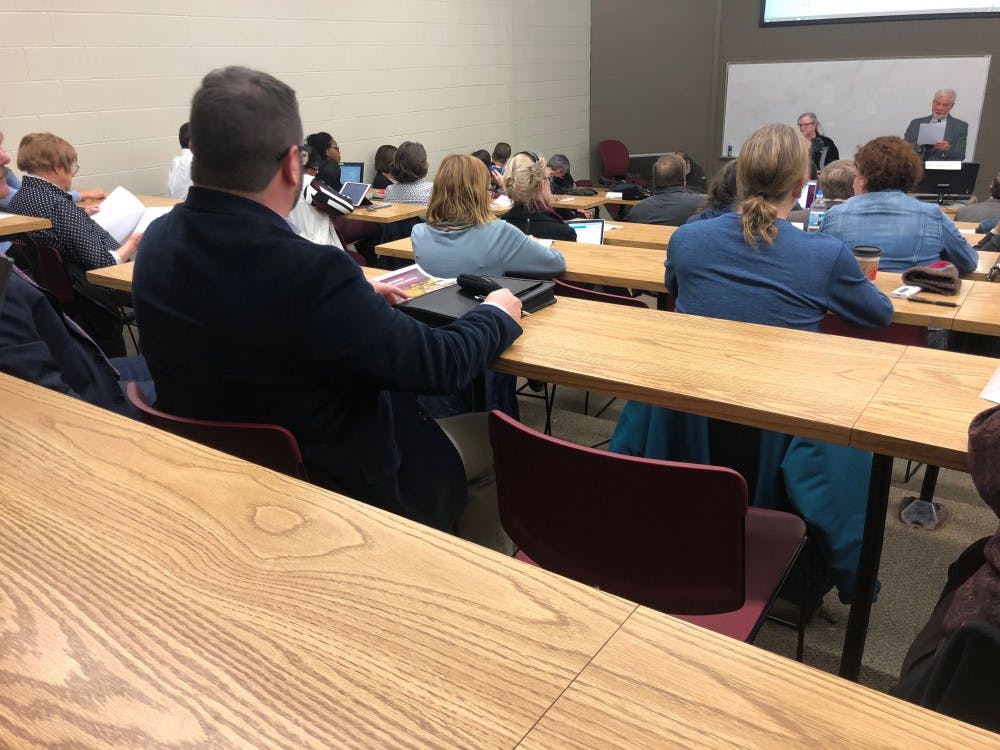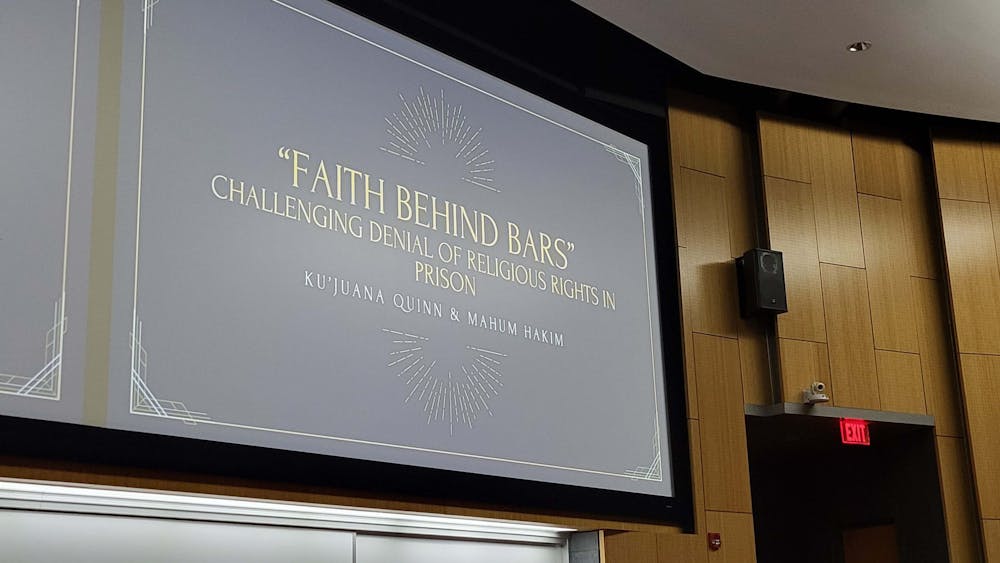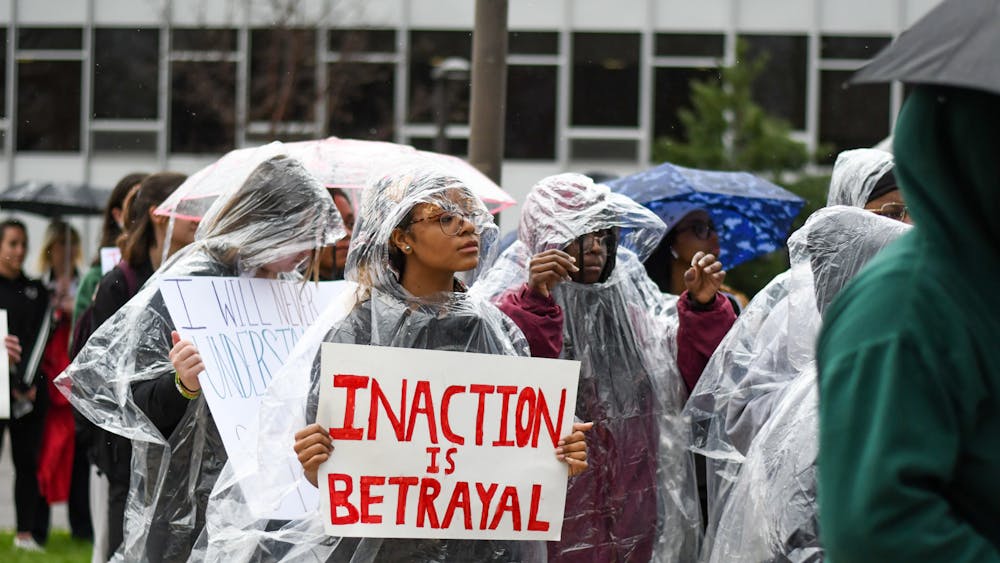Academic Senate questions fairness of student services fee

Academic Senate discusses recently implemented student services fee during thier bi-weekly meeting on Nov. 6 in Pearce 127.
During the Nov. 6 Academic Senate meeting, faculty questioned the fairness of the recently implemented student services fee.
During the meeting, Vice President of Finance and Administrative Services Barrie Wilkes provided a presentation on the $225 fee, which was approved by the board of trustees Jun. 28. All students on the undergraduate, graduate and doctoral levels were charged prior to the start of the semester.
"We began to hear a couple of years back that the students were in need of some (change)," Wilkes said, explaining students, faculty and staff voiced concerns about counseling, academic advising and assistance services offered by Central Michigan University.
In June, the fee was estimated to bring in an additional $10 million annually. This money was to be set aside to advance academic advising efforts, career development and placement services, counseling services and several other programs.
Wilkes said money has already been spent on the following:
- Staffing the Office of Civil Rights and Institutional Equity (OCRIE)
- Advancing enrollment services
- Center for Inclusion and Diversity
- The upcoming commencement ceremony for Fall 2018
- Hiring additional police officers for campus security
Members of the Senate had concerns for certain demographics affected by the fee, specifically students pursuing a low amount of credit hours, and graduate students.
Sociology faculty member Mary Senter voiced her concern for any non-full-time student subjected to the financial charge, such as undergraduate students taking only three credit hours to complete their program.
"It seems for some students paying the entire fee when their involvement with the university is minimal at that point in their career, is just very hard to justify," Senter said.
Debbie Silkwood-Sherer of the School of Rehabilitation and Medical Sciences said the fee completely ignores graduate students already paying up to $80,000 in tuition costs, especially in the physical therapy program.
"This year, we went up by three percent in tuition for those students, and for my students specifically, when I add the fee, it (becomes) six percent. They aren't happy," Silkwood-Sherer said.
She said many of her students do not require the counseling and academic advising services, which are mainly targeted toward those studying on the undergraduate level. The fee is unreasonable to students who are spending minimal time on campus and even less time seeking out its resources, Silkwood-Sherer said.
Wilkes said excluding people from the fee can quickly become a "slippery slope," as every individual's needs are different.
The only parties excluded from this fee include:
- Active military members
- College of Medicine students
- Dual enrollment students
- Disney College Program participants
- Study abroad students paying their overseas institution directly
Senter said although the goals of the fee are legitimately good at heart, they could be easily paid for without its existence.
"You said quite correctly that there was only one pot," Senter said, "I just want to remind everyone we spend well over $1,000 per student to support Division I athletics, and if we weren't spending (this), we would have in that single pot for everything else."
Wilkes said in response, "your math is really good."





